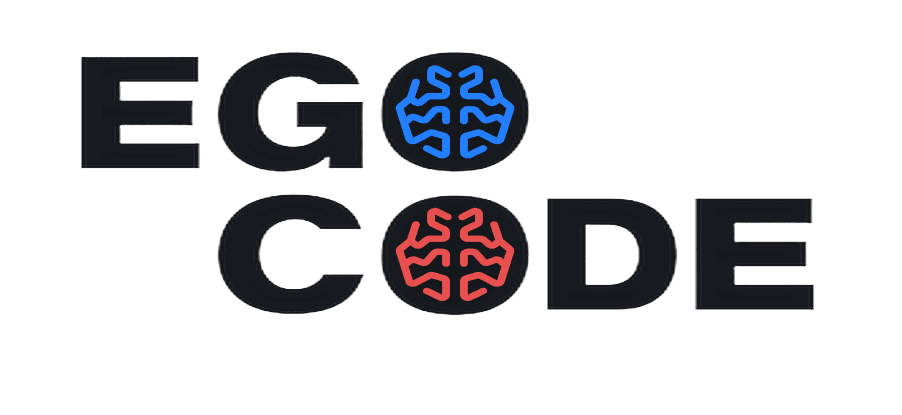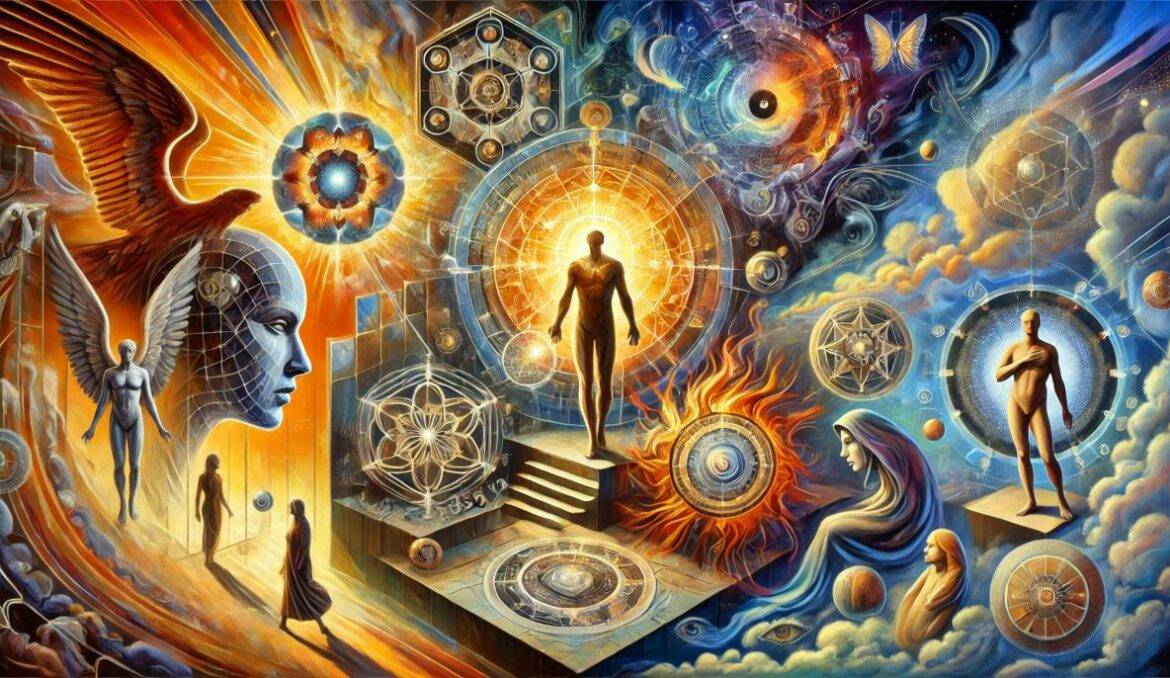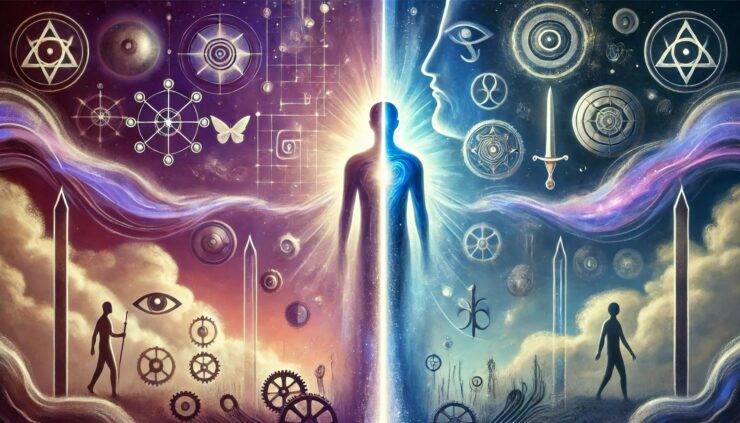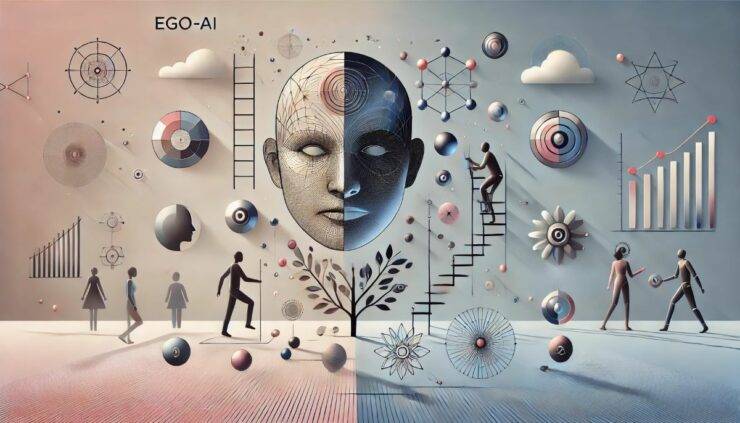The ego is the central element of our self-awareness, the part of us that helps us recognize our identity and place in the world. We often hear about its influence, but what is the ego really? Why does it play such a crucial role in our lives, and how does it shape our perception and interaction with the surrounding world? Understanding the ego opens up opportunities for deep self-discovery and personal growth, helping us better understand ourselves and others.
In this article, we will delve into the world of psychology to explore what the ego is, how it interacts with other aspects of our personality, and how the EGO-AI model can assist us in this exploration. By combining scientific knowledge with practical examples, we aim to make complex psychological concepts accessible and engaging for everyone. Ready to learn more? Let’s get started!
What is the Ego: Perspectives of Freud, Jung, and EGO-AI
Freud’s Perspective on the Ego
Sigmund Freud, the founder of psychoanalysis, viewed the ego as one of the three parts of the personality structure, alongside the Id and the Superego. The Id represents primitive instincts and desires, such as hunger, aggression, and sexual drives. The Superego, in contrast, symbolizes the moral and ethical standards internalized from parents and society.
According to Freud, the ego acts as a mediator between the Id and the Superego. It helps an individual find a balance between primitive desires and moral norms, making decisions that align with reality. Imagine wanting to eat a cake (Id), but knowing it’s unhealthy (Superego). The ego helps you decide to maybe eat a small portion or choose a healthier dessert.
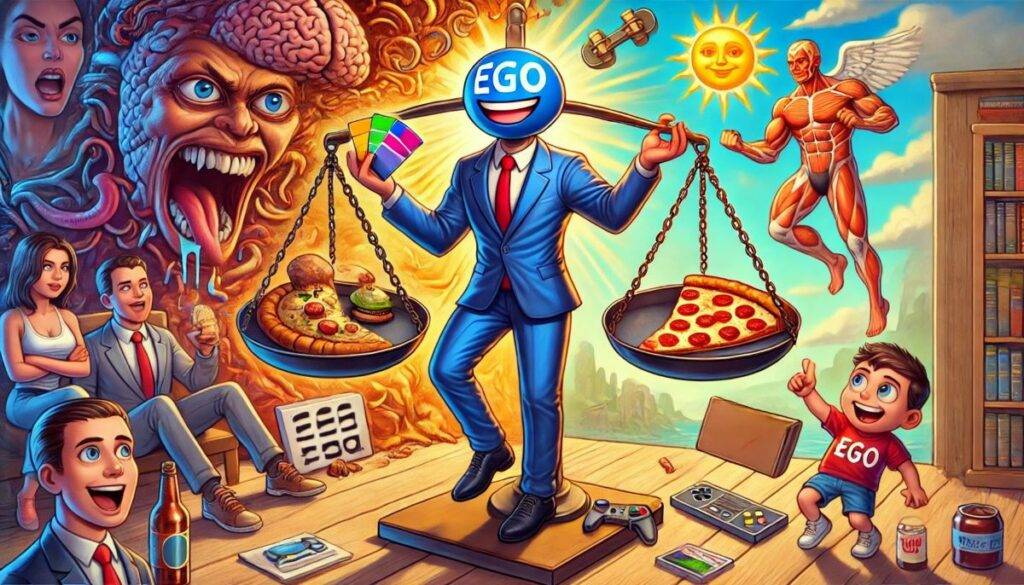
Example: In the movie “The Wolf of Wall Street,” Jordan Belfort seeks immediate gratification of his desires (Id), but his ego helps him manipulate situations and people to achieve success, though not always legally. His Superego, unfortunately, is often suppressed, leading to moral and legal consequences.
Jung’s Perspective on the Ego
Carl Jung, a student of Freud, proposed a more complex and multi-layered model of the psyche. He viewed the ego as the center of the conscious part of the personality, managing our self-awareness and perception of the world. Unlike Freud, Jung included concepts like the collective unconscious and archetypes in his model.
Jung emphasized the importance of the ego’s interaction with other archetypes, such as:
- The Self: The archetype of wholeness and harmony, our ideal that we strive towards.
- The Persona: The mask we wear in society to meet its expectations.
- The Animus and Anima: The male and female aspects of our psyche, respectively.
- The Shadow: Our repressed and unconscious traits.
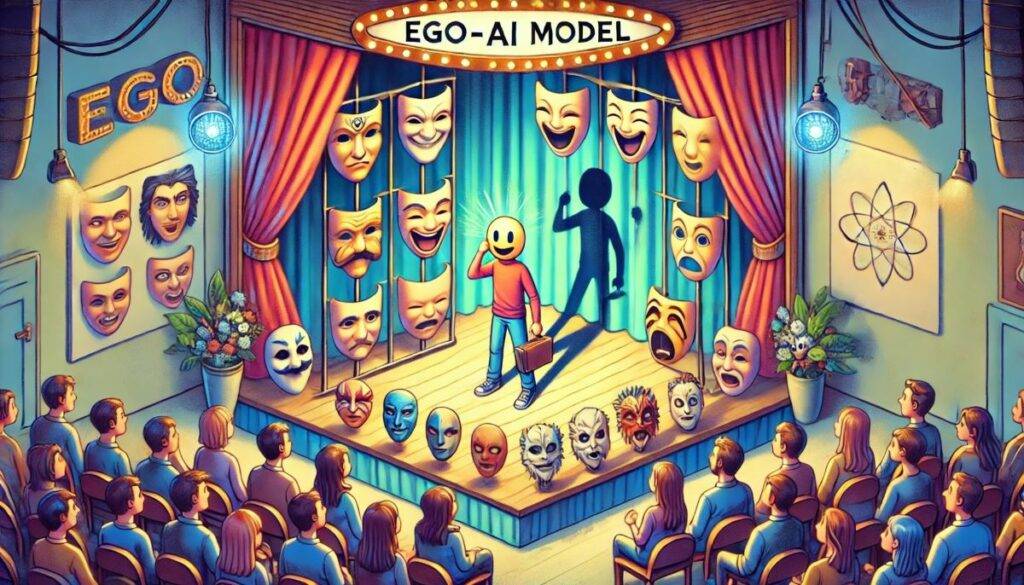
Example: In the series “Fleabag,” the main character (known as Fleabag) demonstrates different aspects of the ego. Her public persona (Persona) differs from who she truly is (Ego). Her internal struggle with repressed guilt and pain (Shadow) shows how the ego interacts with other aspects of her psyche.
The EGO-AI model views the ego as a central element of our personality, helping us navigate the world and interact with others. In this model, the ego is not an isolated element but part of a complex system that includes both conscious and unconscious aspects.
EGO-AI
The ego is the central element of our personality, managing our self-awareness and perception of the world. It helps us make decisions and interact with others, balancing our internal desires with external moral norms. In the EGO-AI model, the ego is seen as a link between the conscious and unconscious aspects of the psyche, such as the Self, Persona, Animus, Anima, and Shadow.
Understanding the ego and its interaction with other aspects of our psyche helps us better recognize our strengths and weaknesses, find balance in life, and strive for personal growth.
The Ego and Its Dynamics
The ego plays a crucial role in maintaining our mental health. It acts as a bridge between our internal desires and external demands, helping us find balance and adapt to life’s situations. The balance between the ego and other aspects of the psyche is critically important for our psychological resilience.
How the Balance Between Ego and Other Aspects of the Psyche Affects Our Mental Health
Jung asserted that harmonious interaction between the ego and other archetypes promotes psychological well-being. When the ego is balanced with the self, persona, anima, and shadow, we feel whole and confident. Conversely, imbalance can lead to psychological problems.
Examples of Situations Where Ego Imbalance Can Lead to Problems:
Dominance of the Persona
When a person overly identifies with their social mask (persona), they may lose touch with their true feelings and desires. For instance, a successful businessperson who always has to appear confident and competent might suppress their fears and insecurities. This can lead to stress, anxiety, and emotional burnout.
Example: In the movie “American Psycho,” Patrick Bateman appears as a successful and charming businessman (persona), but his repressed aggressive desires (shadow) manifest as violence. The imbalance between his persona and shadow leads to catastrophic consequences for himself and others.

Ego Inflation
When the ego becomes too large and all-encompassing, a person may start to feel omnipotent and infallible. This often leads to conflicts with others and an inability to accept constructive criticism.
Example: In the series “Mr. Robot,” Elliot Alderson struggles with a split personality. His alter ego, Mr. Robot, represents an inflated ego that leads him to risky and destructive actions, threatening his mental and physical health.
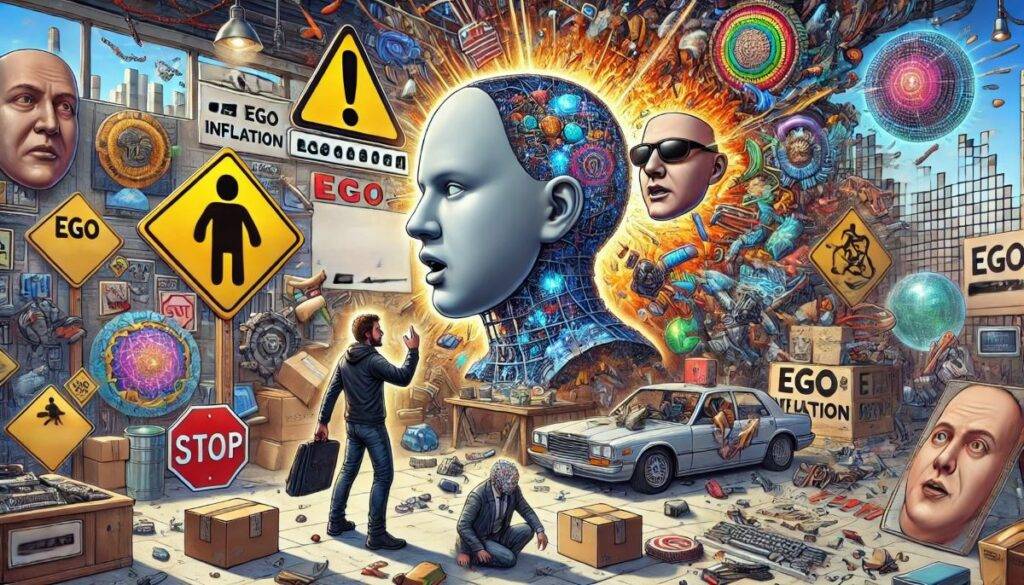
Loss of Connection with the Self
If the ego loses connection with the self, a person may feel an inner void, meaninglessness of life, and loss of purpose. This can manifest as depression and lack of motivation.
Example: In the novel “The Catcher in the Rye,” the main character Holden Caulfield feels deep alienation and the meaninglessness of life. His ego is unable to connect with the self, leading to his inner suffering and identity crisis.
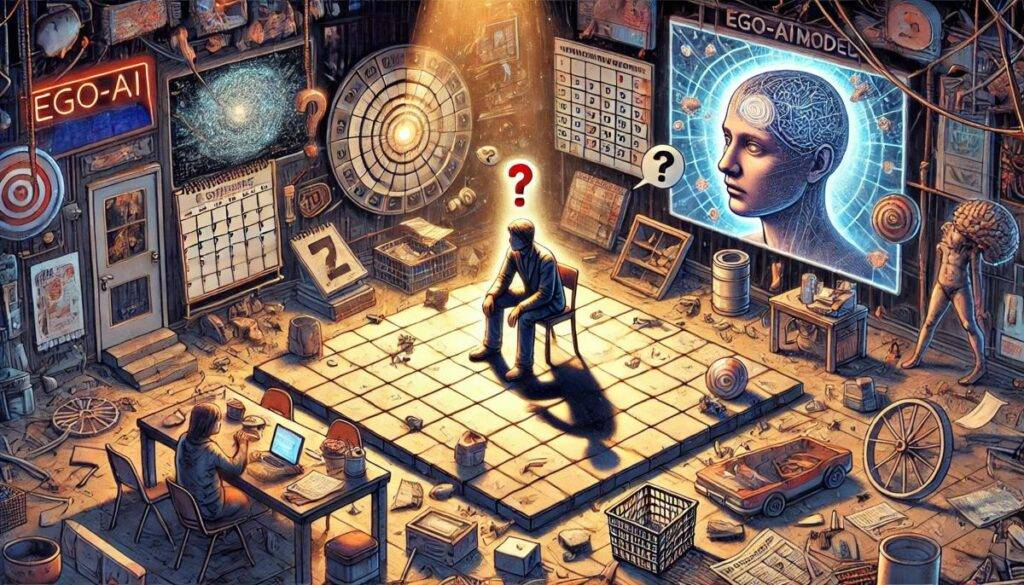
The Role of the Ego in Our Lives
The ego helps us adapt to social roles and interact with others, playing an important role in our everyday lives. It allows us to:
Adapt to Different Situations: The ego helps us make decisions that fit the current circumstances and quickly adapt to new conditions. For example, when starting a new job, our ego helps us settle in and find our place in the team.
Interact with People: The ego enables us to build and maintain social relationships. It helps us understand and consider the opinions and feelings of others, which is essential for successful communication and collaboration.
Handle Difficulties: The ego plays a key role in our ability to overcome life’s challenges and find solutions to problems. It helps us maintain emotional resilience and a positive attitude even in tough situations.
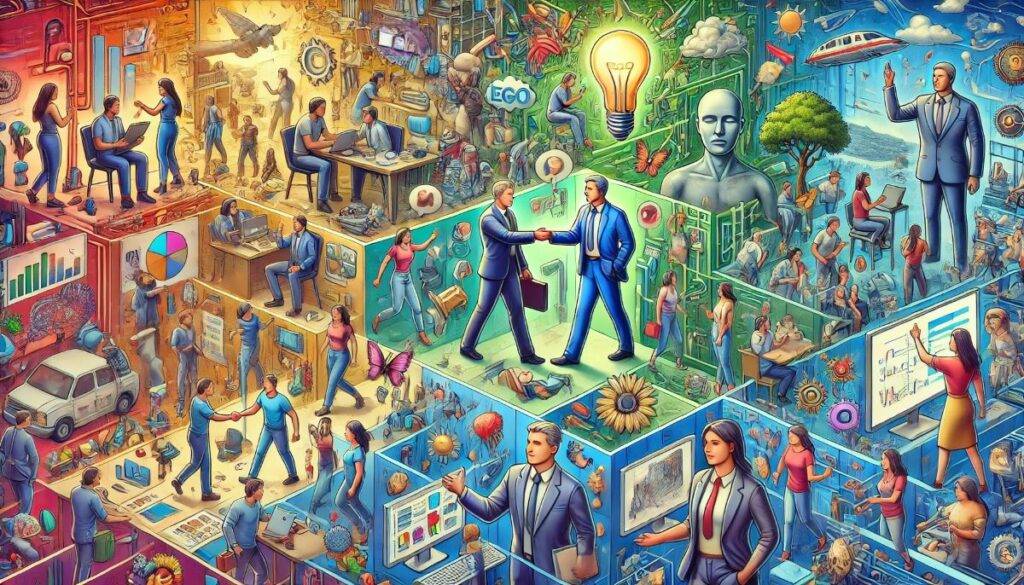
Conclusion
The ego is not just our “self” but a complex and multifaceted construct that plays a crucial role in our lives. It helps us balance internal desires with external demands, adapt to various social roles, and interact with others. Understanding and maintaining harmony between the ego and other aspects of our psyche is critically important for our mental health and well-being.
The EGO-AI model provides unique tools for analyzing and understanding these complex psychological processes, making intricate concepts accessible and beneficial for everyone. This model helps us become aware of our internal states and find pathways for personal growth and achieving harmony.
To learn more about the EGO-AI model and the concept of ego-code, you can read the following article: “What Is An EGO_CODE?”.
